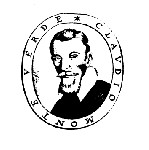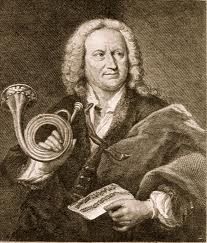Arthur Honegger's lovely, neoclassical Concerto da Camera dates from 1948 and is scored for the unusual combination of flute, English horn (a larger version of the oboe), and strings. The first movement is like a gracious dialogue, the second a gravely beautiful song...
Works
“Scottish” Symphony
On his first trip to the British Isles in 1829 Mendelssohn paid a visit to Scotland, which made a deep impression on him and inspired several future compositions. In 1842, he completed his “Scottish” Symphony (his last symphony) and dedicated it to the young Queen...
Marosszék Dances
Kodály, together with Bartok, was a major figure in the collection and analysis of Hungarian folk music. Many of his compositions are in fact based on Hungarian folk tunes of various types. The “Marosszék Dances” were originally composed for piano and later arranged...
Cantata No. 78
Bach composed this cantata in Leipzig in 1724 “for the 14th Sunday after Trinity.” The cantata is in seven parts. It opens with a majestic chorus based upon a chromatic descending bass line. The choral passages are an interplay between the alto, tenor and bass lines,...
“Hor che ’l ciel e la terra e ’l vento tace”
Claudio Monteverdi (1567-1643) lived and worked in Italy during the transition from the Renaissance to the Baroque era in music. During his long life he became one of the most influential and even revolutionary musicians of his time, especially in the fields of...
Symphony No. 101 in D Major
In 1790, just two months after the death of Haydn’s employer, Prince Nikolaus Esterházy (for whom Haydn served for more than 40 years, with only brief interruptions), the violinist and impresario Johann Peter Salomon arrived in Vienna to convince Haydn to travel with...
Suite for Strings
This Suite unites music from the dramatic output of Purcell. Barbirolli, the famous English conductor, took excerpts from "The Gordian Knot Untied," "Dido and Aeneas" and "King Arthur" and re-orchestrated them slightly, mostly by giving the sung lines of arias to solo...
Concerto No. 2 in g for Violin and Orchestra
No notes available.
Suite No. 4 in D Major
As part of his vast output of vocal and orchestral works, Bach wrote four orchestral suites (or “ouvertures”), probably between 1724 and 1739. They are based on the 18th-century “French style” of overture – a slow opening section with a faster middle section, followed by a variety of dance movements.
Symphony in D Major
Arriaga, who lived from 1806 to 1826, showed an early talent for a musical career. Known as “the Spanish Mozart,” he was born in Bilbao in northern Spain, and composed his only opera (Los Esclavos Felices) at the age of 14. Arriaga’s talent so impressed Bilbao’s...
Try it for Free
Sign Up for a 30 Day Free Trial
Nulla porttitor pretium blandit. Suspendisse id nulla et erat feugiat vehicula. Nam ac sapien maximus sem auctor sollicitudin sit amet a enim. Nulla facilisi. Donec et commodo tellus.


